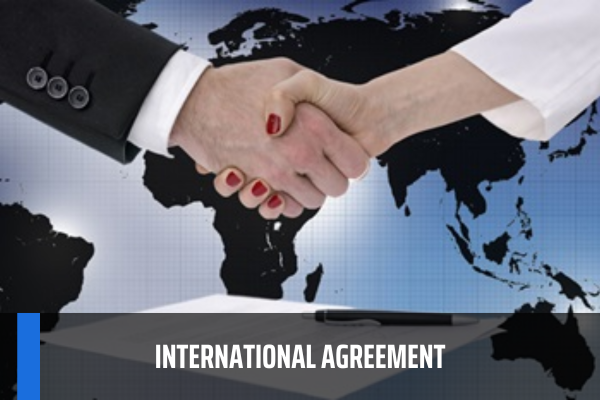Who has the power to decide conclusion of an international agreement in the name of the State or the Government of Vietnam? What are the procedures for concluding international agreements?
- Who has the power to decide conclusion of an international agreement in the name of the State or the Government of Vietnam?
- What are the procedures for concluding international agreements in the name of the State or the Government of Vietnam?
- Who shall grant a power of attorney to sign international agreements in the name of the State or the Government of Vietnam?
- Vietnam: What are the rules for conclusion and implementation of international agreements?
Who has the power to decide conclusion of an international agreement in the name of the State or the Government of Vietnam?
According to Article 8 of the Law on International Agreements 2020, it is stipulated as follows:
Power to decide conclusion of an international agreement in the name of the State or the Government
1. The State President shall decide the conclusion of an international agreement in the name of the State.
2. The Prime Minister shall decide the conclusion of an international agreement in the name of the Government.
Accordingly, the State President shall decide the conclusion of an international agreement in the name of the State and the Prime Minister shall decide the conclusion of an international agreement in the name of the Government.

Who has the power to decide conclusion of an international agreement in the name of the State or the Government of Vietnam? What are the procedures for concluding international agreements?
What are the procedures for concluding international agreements in the name of the State or the Government of Vietnam?
Pursuant to Article 9 of the Law on International Agreements 2020, it is stipulated as follows:
Procedures for concluding international agreements in the name of the State or the Government
1. Ministry, ministerial-level agency or Governmental agency shall send a proposal for conclusion of an international agreement in the name of the State or the Government to seek written consultation from the Ministry of Foreign Affairs and relevant agencies and organizations directly related to this international agreement.
2. The agency or organization from whom the consultation is sought (hereinafter referred to as consulting entity) shall respond in writing within 7 working days after receiving a duly completed proposal specified in Article 27 of this Law.
3. The Ministry, ministerial-level agency or Governmental agency shall examine the consultation, complete the proposal and seek approval from the Prime Minister for the international agreement in the name of the Government; or request the Government to seek approval from the State President for the international agreement in the name of the State.
4. The State President or the Prime Minister shall decide and proceed to sign or authorize another person to sign the international agreement. On the basis of a written decision of the State President or the Prime Minister, the Ministry, ministerial-level agency or Governmental agency shall hold the conclusion of the international agreement.
5. The Ministry, ministerial-level agency or Governmental agency shall report in writing to the State President or the Prime Minister and send copies of the international agreement to the Ministry of Foreign Affairs and relevant agencies and organizations in writing within 15 days from the date on which the international agreement is signed.
Accordingly, the procedures for concluding international agreements in the name of the State or the Government of Vietnam comply with the above regulations.
Accordingly, ministry, ministerial-level agency or Governmental agency shall send a proposal for conclusion of an international agreement in the name of the State or the Government to seek written consultation from the Ministry of Foreign Affairs and relevant agencies and organizations directly related to this international agreement.
The Ministry, ministerial-level agency or Governmental agency shall report in writing to the State President or the Prime Minister and send copies of the international agreement to the Ministry of Foreign Affairs and relevant agencies and organizations in writing within 15 days from the date on which the international agreement is signed.
Ministries, ministerial-level agencies, and Government agencies shall report in writing to the President or Prime Minister and send copies of international agreements to the Ministry of Foreign Affairs and relevant agencies and organizations within 15 days. days from the date the international agreement was signed.
Who shall grant a power of attorney to sign international agreements in the name of the State or the Government of Vietnam?
Pursuant to Article 10 of the Law on International Agreements 2020, it is stipulated as follows:
Grant of a power of attorney to sign an international agreement in the name of the State or the Government
The Minister of Foreign Affairs shall grant a power of attorney to sign international agreements in the name of the State or the Government on the basis of written consent of the State President or the Prime Minister, except for international agreements to be signed by the State President, the Prime Minister or the Minister of Foreign Affairs.
Accordingly, the Minister of Foreign Affairs shall grant a power of attorney to sign international agreements in the name of the State or the Government on the basis of written consent of the State President or the Prime Minister, except for international agreements to be signed by the State President, the Prime Minister or the Minister of Foreign Affairs.
Vietnam: What are the rules for conclusion and implementation of international agreements?
Pursuant to Article 3 of the Law on International Agreements 2020, it is stipulated as follows:
Rules for conclusion and implementation of international agreements
1. Compliance with the Constitution and laws of the Socialist Republic of Vietnam, national interests, foreign policy of the Socialist Republic of Vietnam and international treaties to which the Socialist Republic of Vietnam is a signatory; compliance with the principle of respect for national sovereignty, non-interference in the internal affairs of countries and other basic principles of international law.
2. The conclusion of an international agreement may not give rise to, alter or terminate the rights and obligations of the Socialist Republic of Vietnam in accordance with international law; may not conclude an international agreement on matters that must be achieved through the conclusion of a treaty in accordance with law.
3. Assurance of the external relations and effectiveness of the concluded international agreement, within the state budget allocated or autonomous budget according to the provisions of law.
4. In conformity with the functions, tasks and powers of the agencies or organizations concluding international agreements and with the procedures for concluding international agreements specified in this Law.
5. The conclusion of international agreements by agencies and organizations specified at Points b, c, d, dd, e, g, h, i and k, Clause 2, Article 2 of this Law shall not be binding on the State, the National Assembly, the Government or Vietnamese agencies or organizations that have not concluded these international agreements.
6. Communal People's Committees in border areas only conclude international agreements with foreign contracting parties being equivalent local governments on information exchange, pairing, cooperation in border management in accordance with relevant international treaties to which the Socialist Republic of Vietnam is a signatory.
7. The Vietnamese contracting party is responsible for implementing the signed international agreement, and at the same time, has the right to request the foreign contracting party also implement such international agreement in a spirit of friendship and cooperation.
Thus, the principles of signing and implementing international agreements are implemented according to the above regulations.
LawNet
